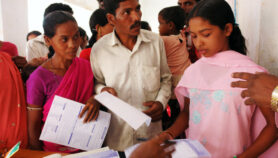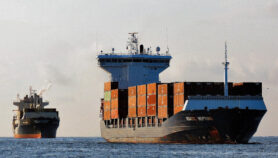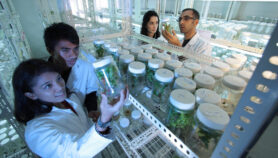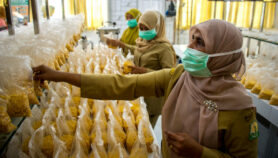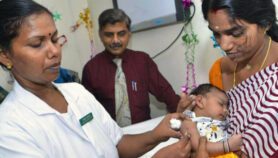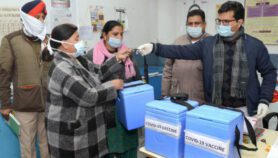By: Catherine Brahic
Send to a friend
The details you provide on this page will not be used to send unsolicited email, and will not be sold to a 3rd party. See privacy policy.
Government ministers from the Asia-Pacific region last week agreed a plan to limit the economic impacts of a human flu pandemic.
It emphasises international cooperation, effective risk communication and coordination between the public and private sectors.
The plan was adopted in Da Nang, Vietnam at a meeting of the 21-member Asia Pacific Economic Cooperation (APEC) forum.
Ministers and senior agriculture and health officials from APEC member states attended the meeting.
They agreed to coordinate their actions on bird flu surveillance and laboratory work, communicating about the risks of bird flu, and how to limit disruption to trade.
The plan states that policies must be "based on the best-available science".
Delegates also agreed it is important to cooperate with international agencies such as the World Health Organization, the UN Food and Agriculture Organization and the World Organisation for Animal Health.
To this end, they pledged to help World Health Organization teams enter their countries, for instance with pre-authorised visas.
Throughout, the plan emphasises transparent communication, particularly regarding outbreaks of bird flu.
This is not to suggest that some countries are not cooperating, said Ian Shugart, chair of the APEC Health Task Force, but to express the APEC members’ commitment to vigilance.
Delegates also agreed that public, private and non-governmental sectors should work closely together, and that governments must coordinate their strategies for helping businesses face the anticipated economic impacts of a human flu pandemic.
The APEC Health Task Force will report in 2007 on progress made implementing the plan.
The ministerial meeting, held on 5 May, was preceded by a two-day workshop to help developing countries communicate about risk during outbreaks of infectious diseases.



